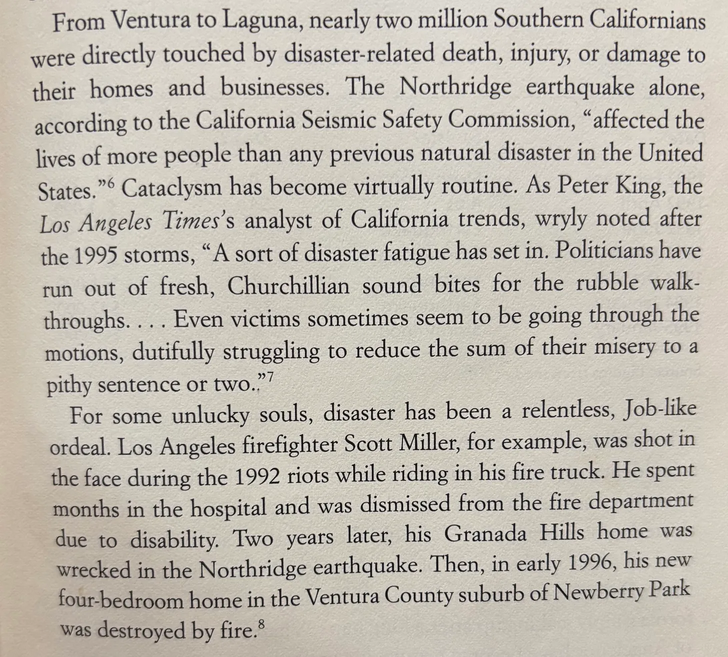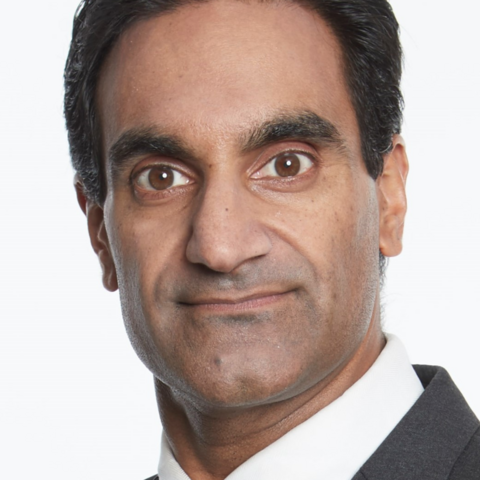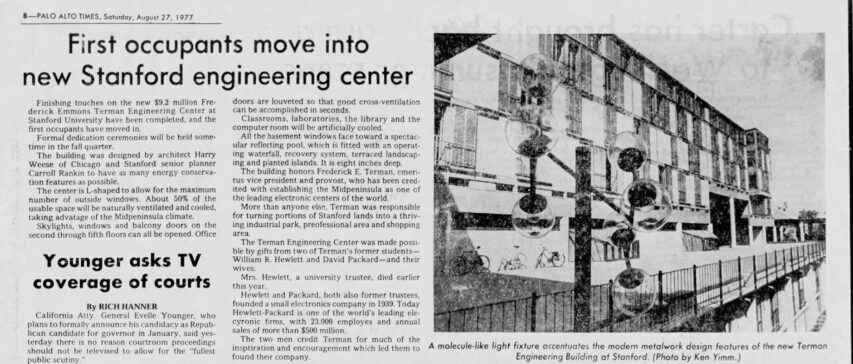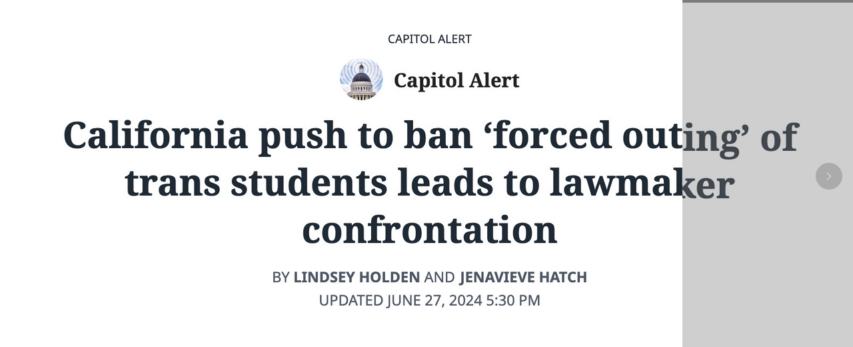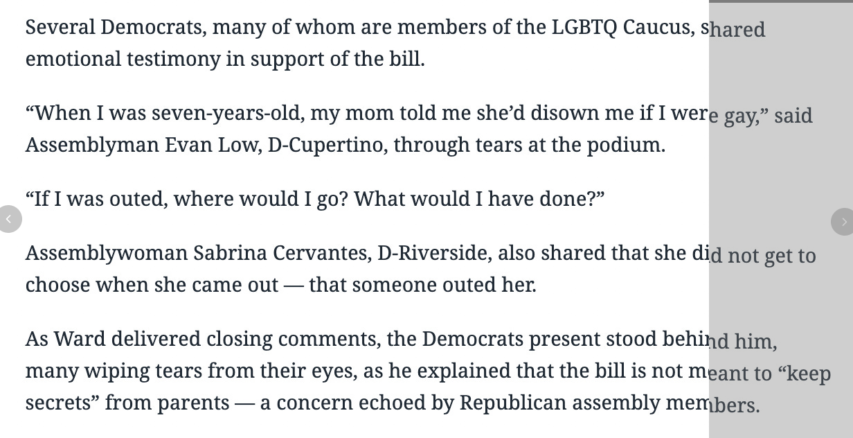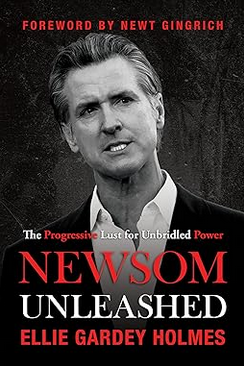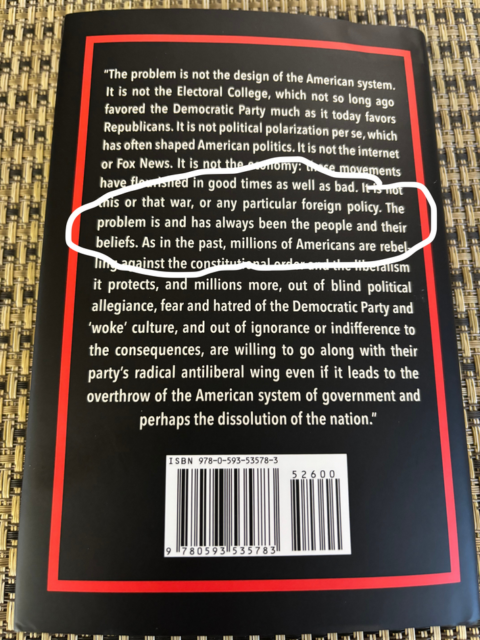I’ve been appalled by Gavin Newsom for years, but to read Ellie Gardey Holmes’s powerful and unflinching new book Newsom Unleashed: The Progressive Lust for Unbridled Power is to find one’s contempt for this hideous creature skyrocketing. If he has any redeeming qualities, any special gifts, any attributes that might illuminate an admirable and recognizably human side, there’s no sign of them here. This is a man who, despite having no discernible talent for governance or anything else, was lucky enough to be born into one well-off family – his great-grandfather co-founded the Bank of Italy, which later became the Bank of America – and to be, from earliest childhood, a sort of honorary member of an even richer family, the Gettys, his father being best friends with oil magnate Gordon Getty, who was like a second father to young Gavin.
Both men, his biological father and his second father, used their considerable influence from the beginning to help Gavin rise to power. Indeed, as surely as any Kennedy or Bush, Gavin Newsom was born into a political machine and bred to be a politician. After he and Getty played a big role in helping Willie Brown to get elected mayor of San Francisco, Brown named Newsom to the city’s Parking and Traffic Commission. Soon he was promoted to the Board of Supervisors, a post he held from 1997 to 2004. “Because of his lack of qualifications,” writes Gardey Holmes, “Newsom entered office entirely indebted to Willie Brown”. Observers referred to him, in fact, as “an appendage of Willie Brown”. Quick sidebar in the midst of this tale of political advancement: when his mother was dying, Gavin was pretty much AWOL, although he was present when she underwent assisted suicide – which, at the time, was illegal in California. Others had been prosecuted for their participation in such actions; Gavin was not, a foreshadowing of many other occasions on which he would be treated as exempt from the rules governing the behavior of ordinary mortals.
In 2003 he was elected mayor. One of his first acts was to authorize the issuing of marriage licenses for same-sex couples, even though he had no power to do any such thing. He even performed some of the marriages himself. This cynical move (which even California’s two Democratic Senators, Dianne Feinstein and Barbara Boxer, opposed) was a cheap stunt, carried out at the expense of gullible gays, whose marriages were soon enough ruled invalid by the state Supreme Court – but it had the desired effect. It made him a national figure and it won him the esteem of the mainstream media. Bob Simon told him on 60 Minutes that he might well have “set a record for instant fame in this country”.
From the beginning of his life in “public service” – that laughable term – Newsom’s vanity and ambition were flagrantly palpable. Although the New York Times described him during his mayoralty as the subject of “local adoration”, some San Francisco insiders resented his brazen focus “on self-aggrandizement and personal publicity” and his relative indifference to the city’s growing problems on a variety of fronts. Routinely, he stole credit for other people’s initiatives and acted as if he were exempt from the rules. A police officer drove him to his wedding in Montana in his official SUV – a definite no-no.
After two terms as mayor he had his eye, naturally, on the Governor’s Mansion – but polls convinced him to run for Lieutenant Governor instead. He spent two terms in that job, too, but hated it: he had no real power, no real staff, no real budget, and he felt disrespected by his boss, Jerry Brown. The initiatives he did support were destructive “progressive” bilge of the first water: for example, he was the only statewide elected official to support Proposition 47, which converted many felonies to misdemeanors, helping to set off the still ongoing rash of shoplifting that has made San Francisco, particularly, an international joke. For the most part, however, instead of addressing the state’s problems he put his energies into enhancing his national profile. He became a fixture on shows like Real Time with Bill Maher. He also wrote – or at least signed his name to – a book calling for the transformation of government by means of “digital technology”; the book’s argument didn’t make much sense, and even Stephen Colbert, usually a reliable left-wing shill, dismissed it as “bullshit”.
And then, inevitably, in 2019, Newsom became governor, thanks in no small part to massive donations from the Gettys and Pritzkers and his role as “the darling of the upper class”. California was already on the skids, but Newsom accelerated the process. He pulled National Guard troops from the southern border, saying that “[t]he border ’emergency’ is a manufactured crisis and California will not be part of this political theater”. He even had the state sue President Trump over his border emergency declaration, which according to Newsom was nothing but an expression of “division, xenophobia, [and] racism”. Instead of canceling one of the state’s notorious boondoggles – the program to build a staggeringly expensive high-speed rail line from San Francisco to San Diego – he shortened the planned route, so that the trains would run only between Merced and Bakersfield. This made the rail line an even more ridiculous proposition, but Newsom’s priority was not to provide a useful means of public transportation but to keep the state from having to return the federal money appropriated for the project to a government run by Donald Trump, who from the beginning of his governorship Newsom singled out as his personal enemy – an action that profoundly enhanced his popularity among California Democrats. Indeed, instead of seriously dealing with California’s jobs and education crises, Newsom focused relentlessly on attacking Trump. A hundred days into his governorship, he bragged childishly that California was “the most un-Trump state”.









